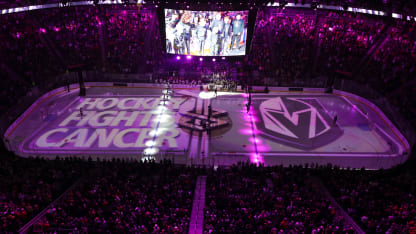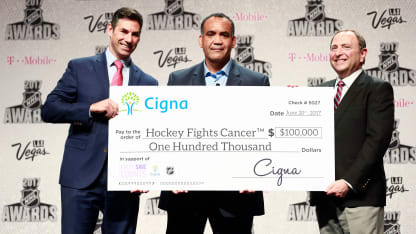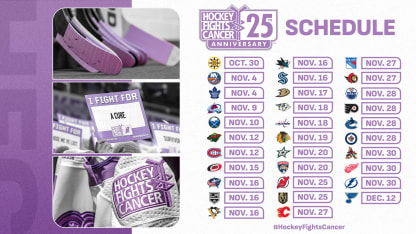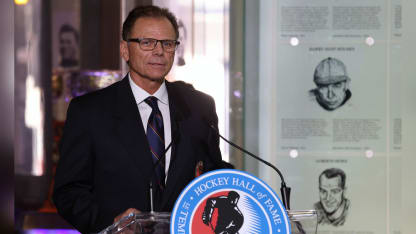Hockey Fights Cancer, a campaign started by the NHL and NHL Players’ Association, turns 25 this year. To mark the anniversary, NHL.com will be telling stories about Hockey Fights Cancer and those impacted by the disease all season long. Today, NHL.com columnist Dave Stubbs looks at the origins of Hockey Fights Cancer.
It was launched modestly Dec. 3, 1998, with a three-page news release, under the logos of the NHL and the NHL Players’ Association.
“The hockey world unites to fight cancer,” the release was headlined, Hockey Fights Cancer (HFC) born as a joint initiative of the NHL, NHLPA, NHL Officials Association, the League’s then-27 teams and a broadcast and corporate partner.
Nearly 25 years later, HFC has grown beyond what anyone in 1998 likely believed it might, more than $32 million raised in its mission to raise awareness of cancer and support the countless number whose lives have been touched by the disease.
“Hockey Fights Cancer has been an incredibly powerful initiative in terms of raising money for research and raising awareness and making people understand the need for education and prevention,” NHL Commissioner Gary Bettman said with HFC’s 25th anniversary approaching next month. “And as importantly, when somebody is inflicted with cancer, knowing that there is a support system, and that the NHL family is there. So it has been an all-encompassing effort which has raised a lot of money at the same time.”
The Commissioner’s view is shared by Marty Walsh, executive director of the NHLPA, who has seen cancer from up close. The former mayor of Boston was diagnosed at age 7 with Burkitt’s lymphoma, a rare, aggressive kind of non-Hodgkin lymphoma that primarily affects children.
“As a cancer survivor, I am honored to join the Hockey Fights Cancer team, along with the players, the League and the clubs, as we continue to raise funds for research, increase awareness and provide further support to those who are dealing with this terrible disease,” Walsh said. “The hockey community is one that is committed to fighting cancer together.”



